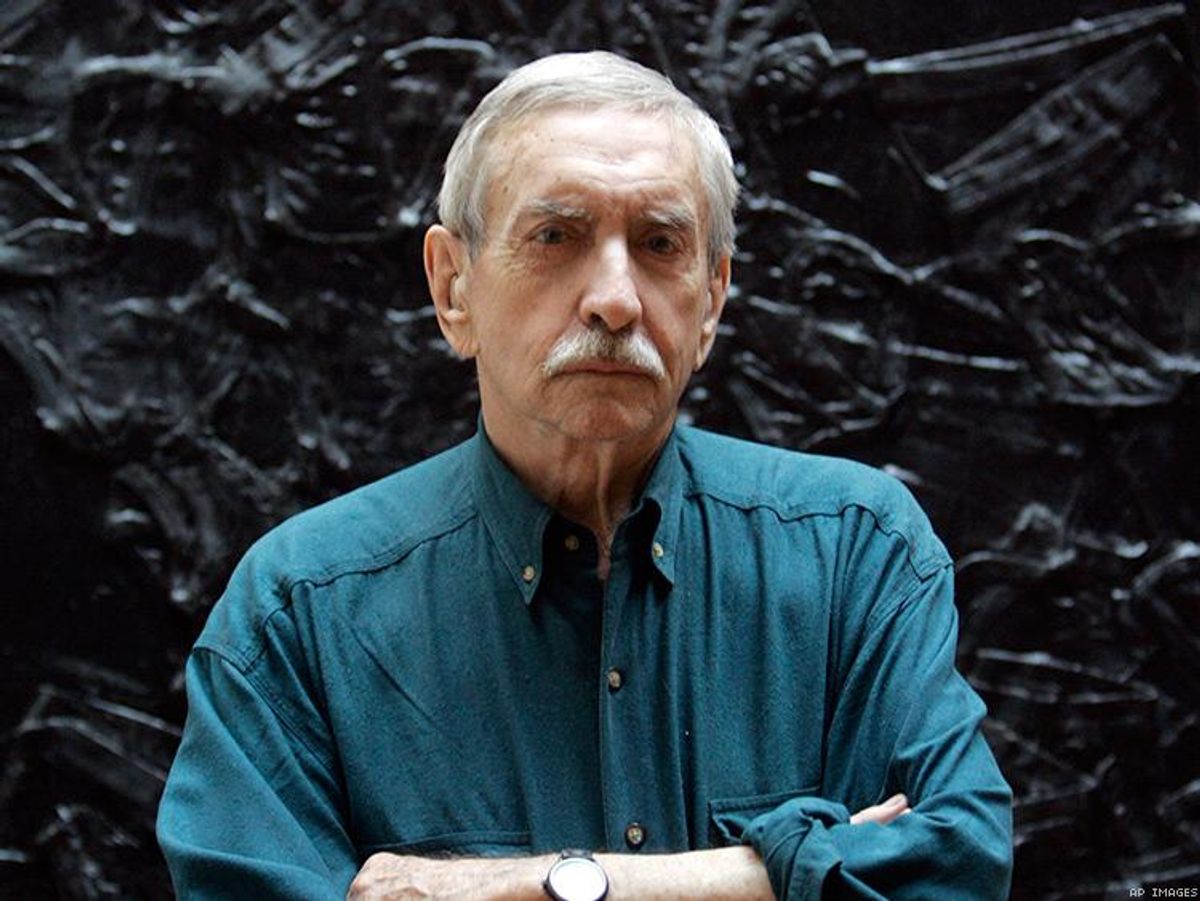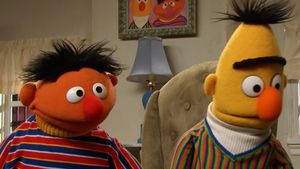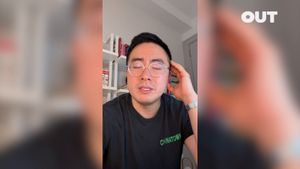Edward Albee, the author of such acclaimed plays as A Delicate Balance, Tiny Alice, and most notably, Who's Afraid of Virginia Woolf?, has died at age 88.
Albee, who was gay, died Friday at his home in Montauk, on New York's Long Island, after a brief illnes, The New York Times reports. He was "widely considered the foremost American playwright of his generation, whose psychologically astute and piercing dramas explored the contentiousness of intimacy, the gap between self-delusion and truth and the roiling desperation beneath the facade of contemporary life," the Times reports.
Albee shocked audiences in 1962, when Who's Afraid of Virginia Woolf? opened on Broadway. The scathing portrait of an unhappy marriage contained language rarely heard on the stage. But it won Albee a Tony Award for Best Play, was adapted into a well-regarded 1966 movie starring Elizabeth Taylor and Richard Burton, and has been revived frequently. The play's fame "hung about my neck like a shining medal of some sort -- really nice but a trifle onerous," Albee once said, according to the Times.
It was too controversial to win the Pulitzer Prize, the New York Post notes, but three other Albee works won the Pulitzer for drama: A Delicate Balance, Seascape, and Three Tall Women.
Albee sparked controversy in LGBT circles in 2011 when accepting Lambda Literary's Pioneer Award, which recognizes groundbreaking LGBT authors. "A writer who happens to be gay or lesbian must be able to transcend self. ... I am not a gay writer. I am a writer who is gay," he said at the ceremony. He observed that no one would describe Arthur Miller as a "straight playwright."
He further commented, "I've written a number of plays that have gay characters in them, but I've never written a play that could be considered a 'gay play' because I consider that a lessening of the creative act, to limit oneself to one's own sexual practices as the subject for one's work."
Some LGBT people thought he was denying the importance of his identity and the need to create work specific to that identity. In a blog post, author Sassafras Lowrey wrote that Albee's message was that "writing from a queer experience was a lesser art form." But others expressed sentiments similar to Albee's, such as Lea DeLaria, who hosted that year's ceremony. "I'm looking forward to the day where it's not 'gay books,' it's just, 'books,'" she said.
In a subsequent interview with National Public Radio, Albee pointed out that he was a longtime activist for LGBT rights but reiterated his assertion about art. "Maybe I'm being a little troublesome about this, but so many writers who are gay are expected to behave like gay writers and I find that is such a limitation and such a prejudicial thing that I fight against it whenever I can," he said.
He added that some critics made erroneous assumptions about his work because he was gay, interpreting the two heterosexual couples portrayed in Who's Afraid of Virginia Woolf? as thinly veiled gay couples.
Albee was born in 1928 in Washington, D.C., and was adopted by a wealthy family involved in the entertainment business. He grew up in Westchester County, N.Y., and attended Trinity College in Hartford, Conn., but was expelled for skipping classes. He then moved to New York City's Greenwich Village to hone his writing craft. His first play was The Zoo Story, produced off-Broadway in 1960. It was an Obie Award winner and put him on a path to the success of Who's Afraid of Virginia Woolf?
In addition to Virginia Woolf, Albee won Tony Awards for 1967's A Delicate Balance and 2002's The Goat, or Who Is Sylvia? In 2005 he received a special Tony for lifetime achievement. Among his other honors are several Drama Desk Awards, including a 2008 special award for his body of work.
In the 1950s, Albee was romantically involved for five years with another playwright who would go on to great fame and acclaim, Terrence McNally. His longest relationship was with sculptor Jonathan Thomas, his partner from 1971 until Thomas's death in 2005, notes The Washington Post. Their years together were "as close to a lifetime [with someone] as anybody gets," Albee told Metro Weekly in 2011.


















































































